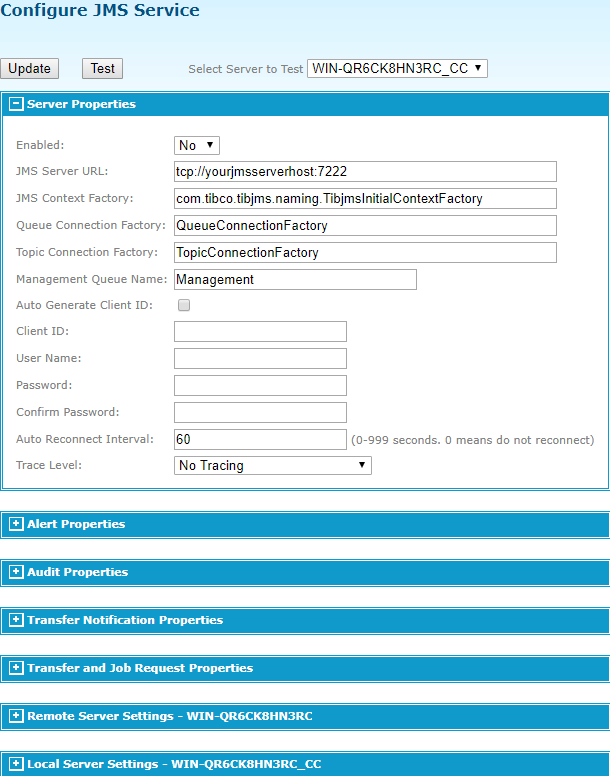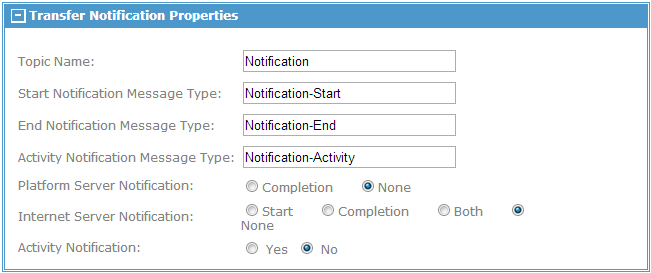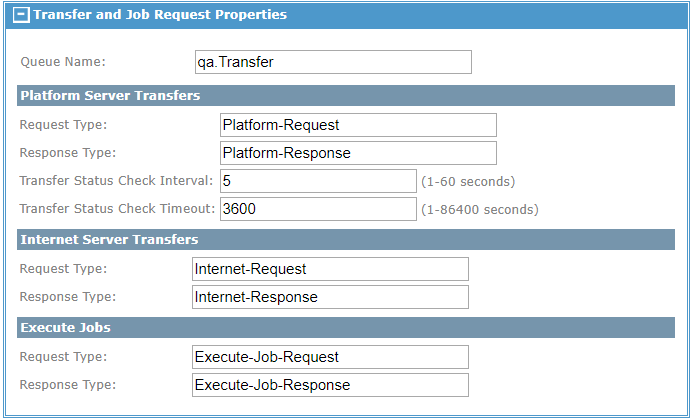Configure JMS Service
Before starting the JMS service, you must configure and enable the JMS service through the Configure JMS Service page which can be accessed by clicking .
The following figure shows the Configure JMS Service page:
When the configurations for the JMS service changes, click Update to update the JMS service configurations. Any changes on this page require the JMS server to be restarted.
You can click Test to connect to the JMS server to verify that the connection parameters are valid and that the defined queues and topics can be accessed.
- To run the test successfully, the JMS jar files for the JMS server must be installed. After adding the JMS jar files to TIBCO MFT Command Center, you must restart the system.
- Because ActiveMQ implements JNDI differently, new queues and topics are created automatically if they don’t exist; therefore, tests will be run successfully.
- If both TIBCO MFT Command Center and TIBCO MFT Internet Server are installed and share the same database, multiple servers are available in the Select Server to Test drop-down list. TIBCO MFT Internet Server also requires the JMS jar files to be applied.
- Server Properties
- Defines the detailed JMS server connection information. This section must be defined to send and receive messages from a JMS server.
- Alert Properties
- Defines the JMS topic that will receive alert messages when an alert defined under the option has an alert action set to sending a JMS message. For more information about setting alert actions, see Alerts.
- Audit Properties
- Defines the JMS queue that will receive audit records.
- Transfer Notification Properties
- Defines the JMS topic that will receive completion notifications when Platform Server transfer requests have occurred.
For a notification message to be sent to a JMS topic for the completion of a Platform Server transfer, the Collection service must be running and either the Platform Server is configured to have audit records collected automatically or an Audit Manual Poll is running to collect the audit records from the Platform Server. For more information of the Collection service, see Collection Service.
When TIBCO MFT Internet Server is installed and share the same database as TIBCO MFT Command Center, start and end notifications can be sent to a JMS topic.
- Transfer Request Properties
- Defines the JMS queue from which the TIBCO MFT Command Center JMS service reads XML files that can initiate Platform Server transfers and Internet Server transfers if TIBCO MFT Internet Server is installed and shares the same database as TIBCO MFT Command Center.
- Remote and Local Server Settings
-
Local/Remote Server settings allow you to override some JMS properties for an individual MFT instance.







